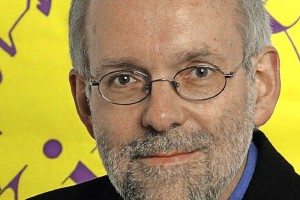A NEW ERA IN CATHOLICISM?
 December 3, 2015
December 3, 2015  Kronikk
Kronikk  Torstein Seim
Torstein Seim  no responses
no responses
 Tagged with:
Tagged with:
By Christian Weisner, Munich, Germany
Translation from German: Friedrich Griess and Brendan Butler
Christian Weisner (born in 1951), is a town planner and co-founder of the church
referendum in Germany in 1995 and since then committed in the reform movement,
We Are Church and the International Movement “We are Church.” Email:
weisner@we-are-church.org
Abstract
Are we witnessing a fundamental paradigm change in an institution
that — with 2000 years of age — can perhaps be considered the oldest
organisation in Europe? Will Pope Francis, and the Roman Catholic
Church with him, finally follow the course set by the reformatory
council, of which 50th anniversary is being celebrated? What are the
implications beyond clerical circles that we can expect and hope for?
This contribution makes an attempt to assess likely transformations of
the 2000-year old vessel of the church — in the midst of a storm on the
high sea, after a change of captain and direction — from the perspective
of the Catholic reform movements.
Keywords:
Laity, Liberation Theology, Reform Movements, Pope Francis,
Renewal, Synodal Church
Are we witnesses of a fundamental paradigm shift? Will the
Roman Catholic Church with Pope Francis now finally follow the
course of the Reform Council, the 50th anniversary of the conclusion
of which is celebrated this year? What impacts far beyond the space
within the Church are to be expected there to be hoped for? And will
under this Pope now religious reform movements be required at all?
1. Necessary Change of Course at the End of a Long Double
Pontificate
The Argentine Jesuit Jorge Mario Bergoglio, elected on March 13,
2013, as ‘Bishop of Rome,’ is the first pope who dared to call himself
after St Francis of Assisi (1181/1182-1226), the mendicant monk and
church reformer in one. The fact that after almost 800 years a non-
European became Pope, gives us hope that the Catholic Eurocentrism
is systematically reduced, and it signals the vision of a church that
stands for justice on a global scale.
Just in time for the 50th anniversary of the closing of the Second
Vatican Council on 8 December 2015, the Cardinals have elected a
new ‘Bishop of Rome,’ who takes the Reform Council from a whole
new perspective and with the experience of Latin America in the
view, the continent in which more than 40 percent of the world’s
Catholic population lives, and where the visions of the Council have
been implemented most intensively.
Francis could have been chosen already in the conclave in 2005.
However, after the nearly 35 years double pontificate of John Paul II
and Benedict XVI, the latter having much impact already during his
23 years as prefect of the Congregation for the Doctrine of Faith, and
after the revelations of Vatileaks, the electing cardinals understood
the need for a change of the course.
The resignation of Pope Benedict in spring 2013 was a historic
occasion and has changed the papacy from the inside in a good sense,
has relativized the entire hierarchical structure and opened for his
successor new freedom and opportunities for development.
The decisive factor will now be whether Francis will succeed in
reforming the Roman Curia, which has solidified over the centuries
to an absolutist power block, thereby restoring the credibility of the
church leadership. Francis is considered to be value-conservative; but
in any case he had a greater willingness to listen and to learn. The
abolition of compulsory celibacy for Catholic priests seems to be
possible for him. The door to the priesthood for women he sees as
closed — but at least he speaks of a door, for which theology can
indeed find a key.
How strong the the resistances is to any kind of reform within the
Vatican itself, is shown by the fact that he felt compelled to express
sharp criticism of the Roman Curia at Christmas greetings 2014.
From the start, to a great extent Francis has the support of the
people in the pews. A survey published in December 2014 by the Pew
Research Center (Washington, DC) in 43 countries shows an average
approval for Pope Francis of 60 percent and only 11 percent rejection.
Particularly high approval ratings have been found in Europe (84
percent), United States (78 percent) and Latin America (72 percent).
The American news magazine Time declared Pope Francis as the
‘Person of the Year 2013.’ Fortune magazine placed him in 2014 at the
top of the ‘World’s 50 Greatest Leaders.’
2. Renewal from the Periphery — Francis’ Experiences from Latin
America
The Argentine bishop, Bergoglio was designated as an advocate of
the poor. At the same time the expectation grew that with him the
awakening of the church renewal from within will come. The claim
that the Church must be a Church for the poor, and the need for
structural church reform go hand in hand with Francis. Even before
his election, he expressed this very succinctly in the non-secret preconclave
on March 9, 2013.
At the first press conference after his election, with the phrase to
‘How I wish a poor church for the poor,’ he established connection to
what Pope John XXIII had formulated before the Second Vatican
Council as his vision. It is a vision that most intensively continued to
live in the following years in the Latin American Church and has
survived despite the most massive political and ecclesiastical
oppression. This hard-won and in practice matured vision has now
returned with Bergoglio ‘from the end of the earth’ into the Vatican.
The Church in no other continent has such a post-conciliar history.
To this way belong many martyrs such as Archbishop Oscar
Arnulfo Romero, whose beatification process Francis has opened
again. From this history Bergoglio has been influenced. He himself
has often had disputes with the Vatican and even personally
experienced censorship.
Jorge Mario Bergoglio is a representative of the ‘theology of the
people,’ the Argentine version of liberation theology that the then-
Cardinal Joseph Ratzinger as Prefect of the Congregation for the
Doctrine of Faith, and now emeritus Pope Benedict, has vehemently
opposed for decades. Characteristically for Bergoglio and his
theological teacher Lucio Gera, influenced by the Jesuit Karl Rahner,
that theology arises from the ministry. As President of the Argentine
Bishops’ Conference, he decisively co-designed the final document of
CELAM in Aparecida.
3. Return to Reforms of the Second Vatican Council
Now with Francis there is yet another chance that the epochal
change continues, initiated 50 years ago by the Second Vatican
Council. In many respects Francis continues on the political line and
the internal church reform projects of Paul VI (passing the tiara, social
encyclical Populorum Progressio, visit to the UN, foreign travel,
ecumenism, liturgical reform).
After two more restorative pontificates Francis is now undertaking
everything to return the church to the reforms of the Council and to
initiate processes that hopefully cannot be stopped. It is a
fundamental cultural shift that now at last implements what the
Second Vatican Council intended 50 years ago.
The Second Vatican Council emphasised collegiality and
recognized that bishops as having a key responsibility in church
leadership. What matters now is that the bishops around the world —
along with all the baptized — are ready to fully assume their rightful
responsibilities for their local churches and the universal Church.
Subsidiarity must not only demanded for society and the state, but
must be lived in the Church itself. ‘If the church does not have the
courage to reform their own structures, they will never have the
moral strength to criticize the structures of society.’ (Bishop Dom
Helder Camara shortly after the Council).
In view of the (too) high expectations that are expressed in many
quarters after this change of pontificate, it can be rightly feared that
the expected course changes do not take place or not fast enough or
not exactly in the desired direction. If Francis as a leader loses the
goodwill of the people in the pews as well as of the public and of the
media, and the hope for the so long awaited ‘Good Shepherd’ and
‘good ruler’ will be disappointed, the break with tradition could be
much worse than in previous decades. This fear may perhaps still let
many bishops hesitate to give Francis the full support he needs. There
may also be Cardinals who, at his election, have recognized the need
for a change of the course, but who now consider the change of the
course to be too strong and too fast. Some may also fear a Gorbachev
effect that with the decentralization, it will happen to the global
Roman Catholic Church as it was the case with disintegrating Soviet
Union.
4. Francis’ Courage to the Synodal Way and his Commitment to
Global Justice
The Roman Catholic Church is now at a critical crossroad. The
tremendous backlog of reforms and the substantial failure of the
Curia urgently require a new style of management and
decentralization. Francis has opted for a synodal way and tries to
initiate processes. In Evangelii Gaudium, Francis expressively designates
his four principles for the process character: ‘Time isgreater than space’,
‘Unity prevails over conflict’, ‘Realities are more important than ideas’
and ‘The whole is greater than the part’ (EG, 222-237).
This includes — despite some shortcomings in implementation —
the broad consultation process in preparation for the Family Synod
that Pope Francis initiated. ‘Realities are more important than ideas’
(EG, 231) is a core idea of Francis. This must have consequences. The
Church’s sexual teaching overall is understood neither in content nor
in the form because it has lost touch with the reality of man. But the
process character of the Synod requires patience and for some it is
difficult to be understood.
Francis sees first and foremost the need for a change of mentality,
especially among the bishops, and practices a dialogic and spiritual
leadership style. But by that the deep church leadership crisis is far
from being over. To safeguard the reform process put in motion by
Francis theologically and in church politics, even much stronger
support from all reformist cardinals, bishops and theologians around
the world is urgently needed.
With his critique of capitalism Francis is not afraid of addressing
the economically and politically powerful. As a common thread, the
opinions of Francis run through the scandal of poverty and the option
for the poor. Above all, his programmatic encyclical Evangelii
Gaudium and the sentence contained therein ‘this economy kills’
evoked the bourgeois public opposition and outrage. Francis’ words
leave nothing to be desired in terms of clarity, but correspond to the
long tradition of church doctrine up to the statements of recent popes.
The Catacombs Pact of 16 November 1965, inspired by the idea of a
‘church of the poor’ by Pope John XXIII, won new relevance with
Pope Francis. Francis was the first Pope, who invited the leaders of
social movements from all over the world to a meeting at the Vatican.
His sensational speech on October 28, 2014 was far more radical and
more important than his programmatic encyclical Evangelii Gaudium.
Some have interpreted this speech even as a ‘spontaneous encyclical
on poverty and the environment’.
5. Process-oriented Change Management of a World Organization
Pope Francis relies on ‘collegiality’ instead of ‘papal absolutism’.
Two years after his election, the new course is increasingly apparent.
Within the global Roman Catholic Church, a mood swing is
happening that during the long double pontificate of the last two
popes nobody thought to be possible. But it is not only the new and
spiritual leadership style. Francis has made numerous personnel and
organizational decisions that encourage the hope for a basic reform.
As might have been expected, there are strong countervailing
forces against any reform not only in the Vatican, but also by bishops
and traditionalist groups around the world that operate behind the
scenes, but increasingly also speak out. But the Jesuit Francis with his
decades of leadership experience in the extremely difficult situation
of the Argentine military junta seems to have already taken into
account these reactions.
The convocation of international advisory bodies which already
took place after a short time was an important step of a new collegial
management style. The discussions so far, however, show how
difficult a reform of the Curia is that which Pope Paul VI had tried.
Particularly delicate areas of action are the fight against the crimes of
minors by clergy and transparency in the controversial
Vatican Bank and the opaque Vatican finances.
The Curia reform is for Francis not only the result of administrative
reforms and modifying what have become obsolete and outdated
structures, but rather the result of a vibrant new orientation to the
principles of the gospel. It is therefore important not only to increase
the effectiveness of the Curia, but that a spirit of transparency, a
collegial pluralism and democratic foundation becomes effective.
6. At the Beginning of a New Church Era?
2015 is the year of anniversaries, major challenges and important
decisions. 50 years after the end of the Second Vatican Council it will
be seen at the Family Synod this fall, if the impetus for reform set by
Pope Francis is consistently taken up and continued. We are
experiencing a situation that has opened the possibility of a crisis, the
possibility of repentance and turning. We cannot hope that the new
church is given us from above, however. Rather, we must open
ourselves, looking for the new things.
Also the Church Referendum We Are Church, launched 1995 in
Austria, celebrates its 20th anniversary this year. Worn by the vision
of People of God of the Council, it had five points of the internal
church renewal on the content: fraternal church, full equality of
women, voluntary celibacy, an affirmative attitude to sexuality, good
news instead of threatening message. Until now, none of these
demands are realized.
In common with many other reformers worldwide and in
collaboration with a renewal oriented theology, it has been possible
to advance a broad shift in consciousness in the church people, as
studies and surveys have repeatedly shown. The five points of the
church referendum, supplemented by the ecumenical movement,
have become a global reform canon for a church that can concretize
the theology of communio of the Second Vatican Council.
The shortage of priests and the associated current collapse of
classical pastoral community come forward to the development,
because there is no one who might patronize the communities. But
dogma and canon law still try to impose an authoritarian preconciliar
church image.
Francis and we still face a long way to bring the Roman Catholic
Church back on reforms in the direction of the Second Vatican
Council. Will the bishops manage to share the synodal way of
Francis? Are they willing to go synodal also in their dioceses? And
how it is possible to ‘carry’ the traditionally oriented believers? If no
convincing solutions are obtained this year, the decaying of authority
of the Catholic Church will be far worse than by the encyclical
Humanae Vitae.
7. ‘Global Player’ with Great Responsibility
Of the estimated more than eight billion people living in 2030 on
our planet, more than a quarter will belong to the Christian churches.
For the Roman Catholic Church, one of the few ‘global players’, this
means — not only in religious terms — a great responsibility far
beyond their own faith community. Because it is of worldwide
influence whether and how the largest single church interferes with
the questions of survival of humanity, what ethical standards they
proclaim and practise themselves — from sexual teaching to business
ethics and to the ethical issues at the beginning and end of human
life.
But even discussions on mandatory celibacy, priesthood of women
and the use of condoms are, in view of the world problems, more
than just the ‘usual intra-Catholic controversial issues,’ the issue here
are all existential questions, namely how power is exercised, how
men and women interact in the following of Jesus, how sexuality is
practised responsibly and how the tensions between passing tradition
and the necessary renewal can be made productive. Church reform
and survival issues facing humanity are so closely intertwined.
‘The renewal comes from the periphery,’ this word of Leonardo
Boff seems to have become true with Jorge Mario Bergoglio
geographically and by content. The deep crisis in the church
leadership has not yet been overcome. Now there is at least
reasonable hope for a change in the Roman Catholic Church.
The key question for the future I see is what religions can
contribute to the solution of the immense global social and economic
problems, but especially if they can arrive with each other to a
peaceful coexistence. The liberating message of Jesus Christ, his
commitment to the marginalized, his love of neighbour and even love
of enemies can contribute significantly to addressing the fundamental
problems of humanity. For this purpose, we urgently need new forms
of participation in the central issues of future in order to take and to
dare responsibility in the great upheavals.
All the forces of reform should support a determined and
consequent course of reform of Francis to counter the still strong
resistance within the Church. Let us cooperate in order to make it
possible to initiate a process of change and make it irreversible, so
that the Roman Catholic Church can carry out its tasks in the rapidly
changing global community of humankind.
References
Arntz, Norbert, Pastorale Umkehr – Das Programm des Franziskus-
Pontifikats, München, 28 Seiten, “Gelbe Reihe” der Kirchen Volks
Bewegung, 2013, Wir sind Kirche, www.wir-sindkirche.
de/files/2102_GR_Arntz_Pastorale_ Umkehr.pdf.
Erbacher, Jürgen, Ein radikaler Papst. Die franziskanische Wende, München:
Pattloch, 2014.
Franziskus, Apostolisches Schreiben Evangelii Gaudium (24.11.2013),
http://w2.vatican.va/content/francesco/de/apost_exhortations/document
s/papa-francesco_esortazione-ap_20131124_evangelii-gaudium.html, oder
als Buch bei Herder Freiburg.
Franziskus, “Ansprache vor den Teilnehmern am Welttreffen der Sozialen
Bewegungen in der Alten Synodenaula, Rom, Dienstag 28. Oktober
2014Übersetzt von Norbert Arntz, www.itpol.de/?p=1491 oder in Publik-
Forum-Dossier “Die Kraft der Armen” 5.12.2014.
Häring, Hermann, Versuchung Fundamentalismus, Gütersloh: Gütersloher
Verlagshaus, 2013.
Kohl, Georg, Lauer, Christian, Weisner, Christian, 2012: “Eine 2000-jährige
Weltorganisation verändern. Kritischer Blick auf die Wandlungsfähigkeit
der katholischen Kirche,” in Organisations Entwicklung, Jg. 31, Juli, 2012,
www.wir-sind-kirche.de/files/1768_ZOE%203_12%20kohl%20et%20al.pdf.
Küng, Hans, Ist die Kirche noch zu retten? München: Piper, 2011.
Mitschke-Collande, Thomas von, “Radikale Schritte sind nötig,” Süddeutsche
Zeitung vom 9.11.2013.
Robinson, Geoffrey, Macht, Sexualität und die katholische Kirche. Eine
notwendige Konfrontation, Oberursel: Publik-Forum, 2010.
Ramminger, Michael, “Alles ist relativ, außer Gott und der Hunger,”
Manuskript des Vortrags auf der Wir sind Kirche-Bundesversammlung vom
25. Oktober 2014 in Essen, www.wir-sind-kirche.de/files/2220_
RAMMINGER%20alles%20ist%20relativ.pdf.
Scholl, Norbert, “Wozu noch Christentum? Was nicht verloren gehen darf.
Worauf verzichtet werden sollte” Publik-Forum, Oberursel, 2014.
Vallely, Paul, Papst Franziskus Vom Reaktionär zum Revolutionär, Darmstadt Vallely,
Paul, Papst Franziskus Vom Reaktionär zum Revolutionär, Darmstadt:
Theiss-Verlag, 2014.
Waldenfels, Hans, Sein Name ist Franziskus. Der Papst der Armen Broschiert,
Paderborn: Verlag Ferdinand Schöningh, 2014.
Weisner, Christian, 1997: “Vom Kirchen Volks Begehren zur Kirchen Volks
Bewegung. Wie lässt sich eine 2000 jährige Weltorganisation verändern?” in
Forschungsjournal Neue Soziale Bewegungen 10, 3 (1997) 74-77.
First published
ASIAN HORIZONS
Vol. 9, No. 3, September 2015
Pages: 518-526




